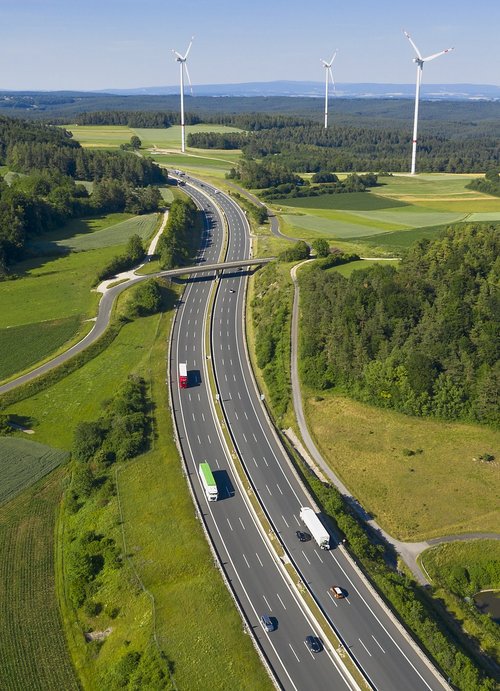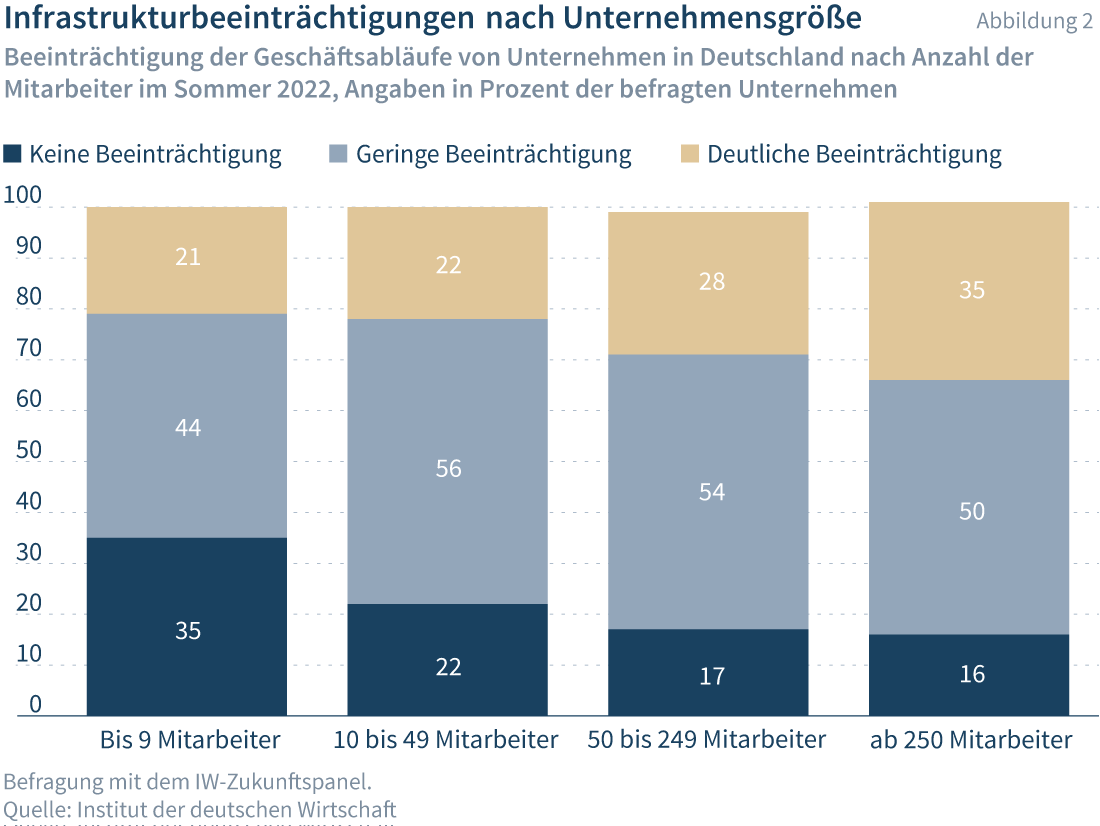In recent months, closed motorways, congested seaports and cancelled freight trains have combined with already high energy prices and material shortages to cause exasperation in Germany’s business community.

How Much Do Infrastructure Problems Affect Businesses in Germany? Results of IW Surveys

In recent months, closed motorways, congested seaports and cancelled freight trains have combined with already high energy prices and material shortages to cause exasperation in Germany’s business community.
Following up on surveys already conducted in 2013 and 2018, the German Economic Institute (IW) this summer again asked companies how the state of national infrastructure impacts on their ongoing business activities. The results of this third poll show that since the first survey the situation has steadily deteriorated. Four out of five responding firms currently see their business activity regularly impaired by a lack of appropriate infrastructure. This is more than 20 percentage points higher than in the autumn of 2013. Since 2018, the share of companies suffering significantly from infrastructure deficiencies has increased from 16 per cent to 27 per cent, with larger concerns being particularly badly affected. The most severe burden on business continues to be an inadequate road network, while the most significant changes since 2018 have occurred in energy supply and shipping. The problems with transport networks have accumulated over many years as a result of underfunding. Although the national and regional governments are now making more funds available for investment, rising construction prices are to a large extent absorbing their impact. Moreover, the implementation of infrastructure projects is often painfully slow. Planning and approval processes take far too long and tie up too much of the authorities’ capacity. At the same time, along the entire investment chain – from planning to construction and operation of the completed infrastructure – there is a shortage of skilled labour which is only likely to increase.


How Much Do Infrastructure Problems Affect Businesses in Germany? Results of IW Surveys

More on the topic

Compendium 5.4: CO2 Regulation of Road Transport in Europe
With the Compendium CO2 Regulation in Europe, the IW has been providing the interested public with a comprehensive collection of data on the development of CO2 emissions from passenger car traffic in the European Union, as well as on the applicable regulatory ...
IW
The Transformation of the Automotive Industry: An International Comparison of Germany's Innovation Performance
The automotive industry is undergoing a comprehensive technological transformation that is challenging established value chains. Making sure that domestic research helps to shape this ongoing transformation is therefore an important task for countries with a ...
IW